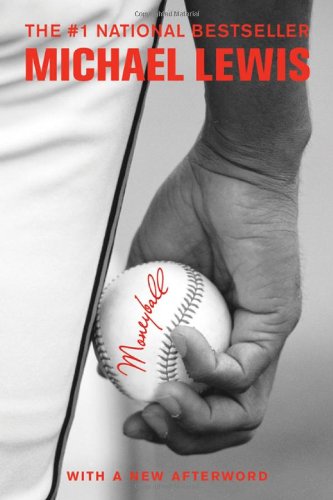All Nonfiction
- Bullying
- Books
- Academic
- Author Interviews
- Celebrity interviews
- College Articles
- College Essays
- Educator of the Year
- Heroes
- Interviews
- Memoir
- Personal Experience
- Sports
- Travel & Culture
All Opinions
- Bullying
- Current Events / Politics
- Discrimination
- Drugs / Alcohol / Smoking
- Entertainment / Celebrities
- Environment
- Love / Relationships
- Movies / Music / TV
- Pop Culture / Trends
- School / College
- Social Issues / Civics
- Spirituality / Religion
- Sports / Hobbies
All Hot Topics
- Bullying
- Community Service
- Environment
- Health
- Letters to the Editor
- Pride & Prejudice
- What Matters
- Back
Summer Guide
- Program Links
- Program Reviews
- Back
College Guide
- College Links
- College Reviews
- College Essays
- College Articles
- Back
Moneyball by Michael Lewis MAG
Early in Michael Lewis's Moneyball, an entertaining guide to the otherwise dull world of baseball statistics, we encounter baseball manager Billy Beane at the draft pick, representing his low-rent team, the Oakland A's. Unlike many others, the A's have no money. But they do have one thing others don't: a manager with a unique insight into baseball statistics. While other scouts find “good” players by just looking at them, Billy analyzes their statistics and the numbers that really matter.
By the end of the draft, through a combination of smarter statistical analysis and better negotiating, Billy walks away with his dream team, and no one figures out his scheme. In one sense, Moneyball is about how a failed ball player puts together a winning team. In addition, there's the idea that the right data and the right analysis can give you a tremendous advantage in baseball and in life. I loved this idea, and I may never look at baseball the same way again.
As the title suggests, baseball is first and foremost a business. Billy Beane was the first to understand that baseball strategy needs to be based on data and that this leads to results. Previously, managers relied on a combination of folklore and conventional statistics to predict good players. For instance, players were often evaluated by their number of “errors.” Yet the novel points out that “errors” are nothing more than “what an observer thinks should have been accomplished.”
Basically, Billy discovers that ordinary baseball stats are not merely inadequate, they lie. So Billy teams up with math expert Paul DePodesta, and looks at the “right” stats, like on-base percentage.
All this talk about numbers could be boring, but it's not. The book is full of weird, funny characters and snappy language. Billy himself is a really interesting, contradictory, amusing man.
This wonderfully entertaining and surprising book is a must-read. It showed me that stats can apply to almost everything. including work or school. What really is a grade point average, anyway?
Similar Articles
JOIN THE DISCUSSION
This article has 0 comments.

